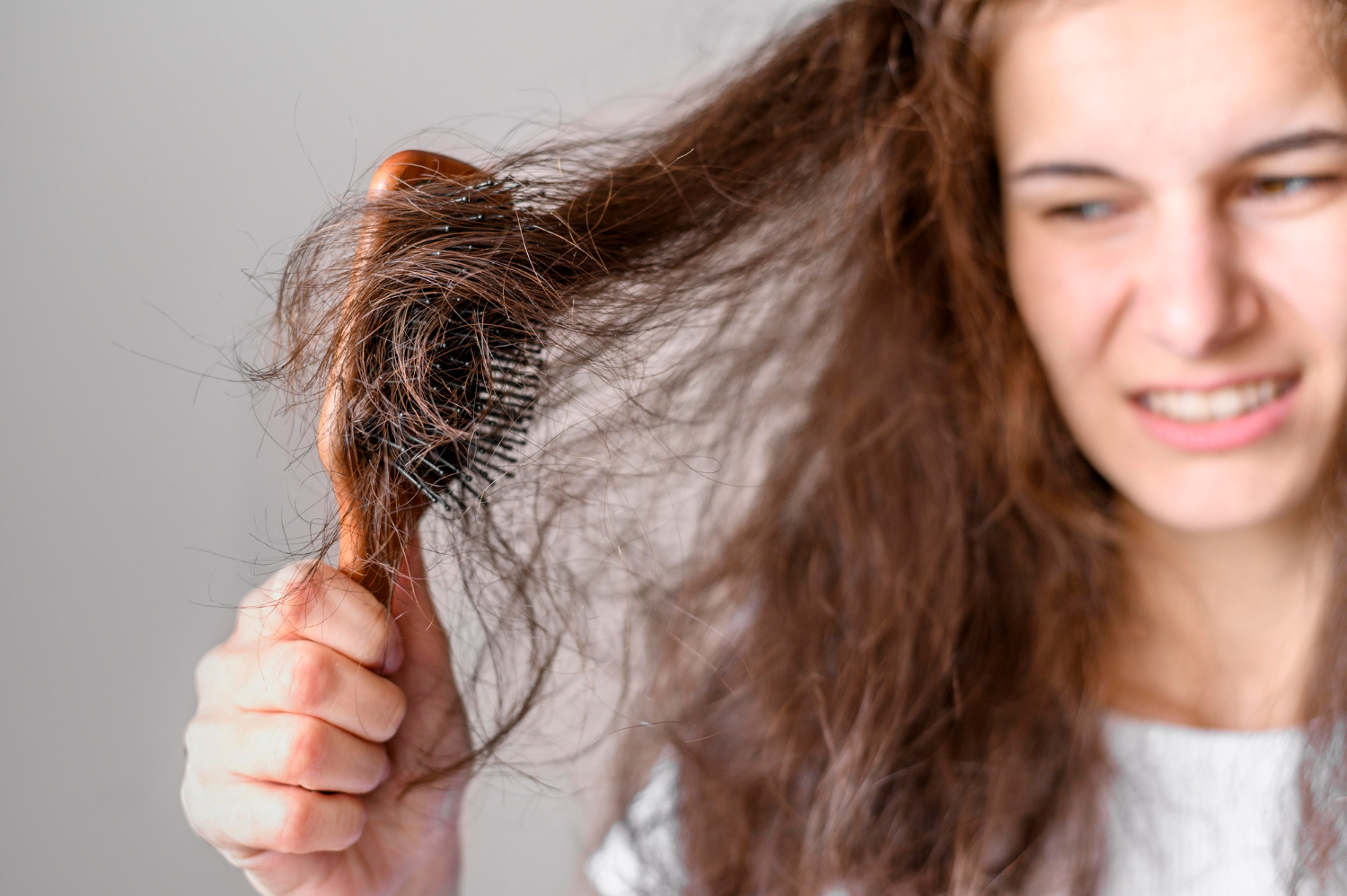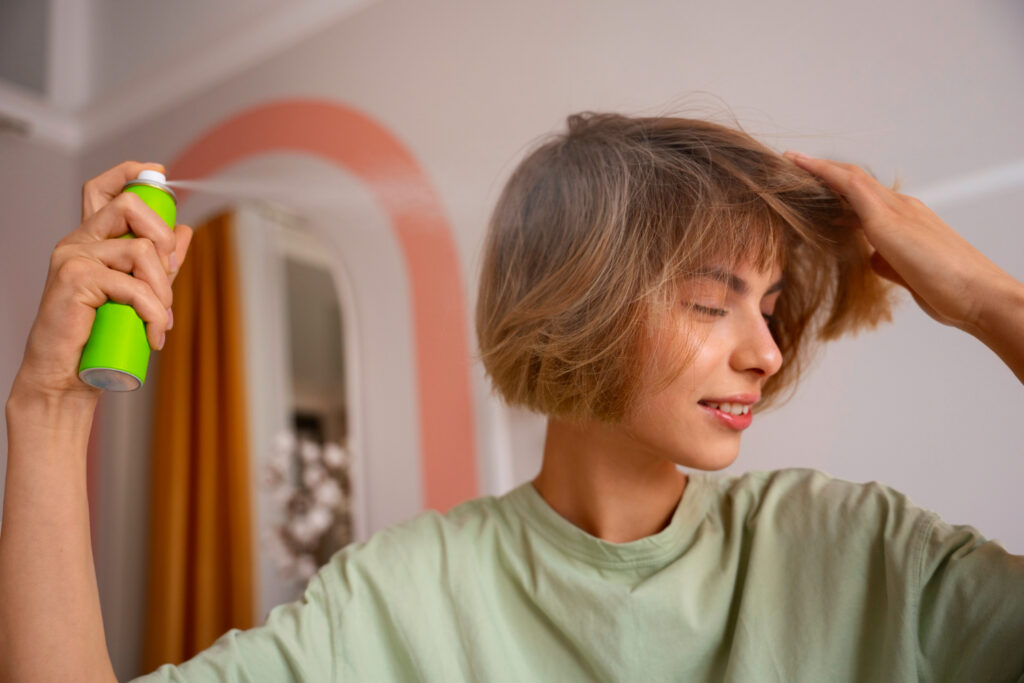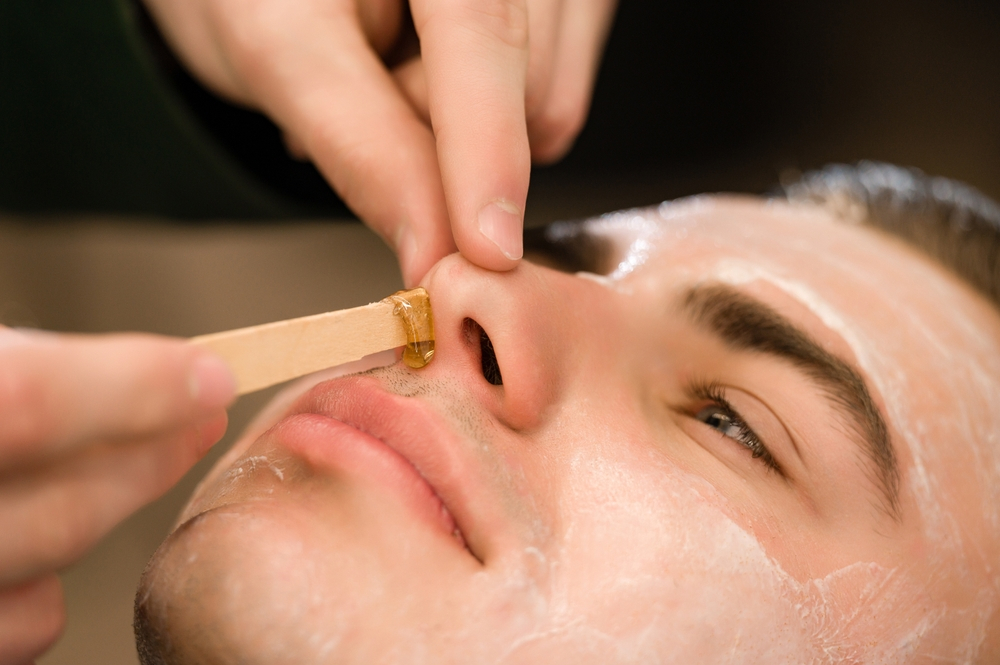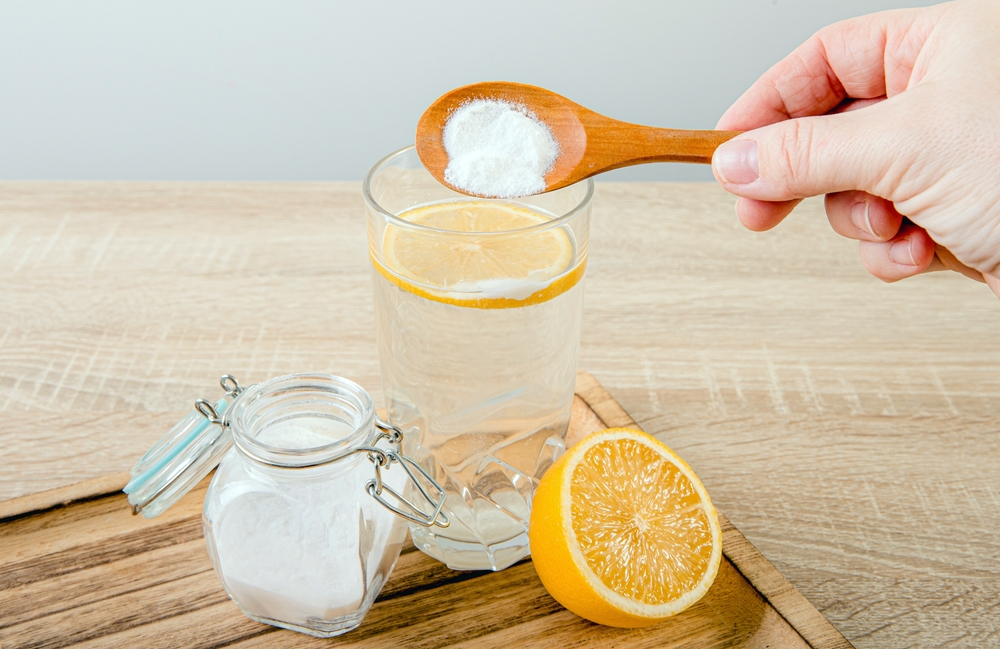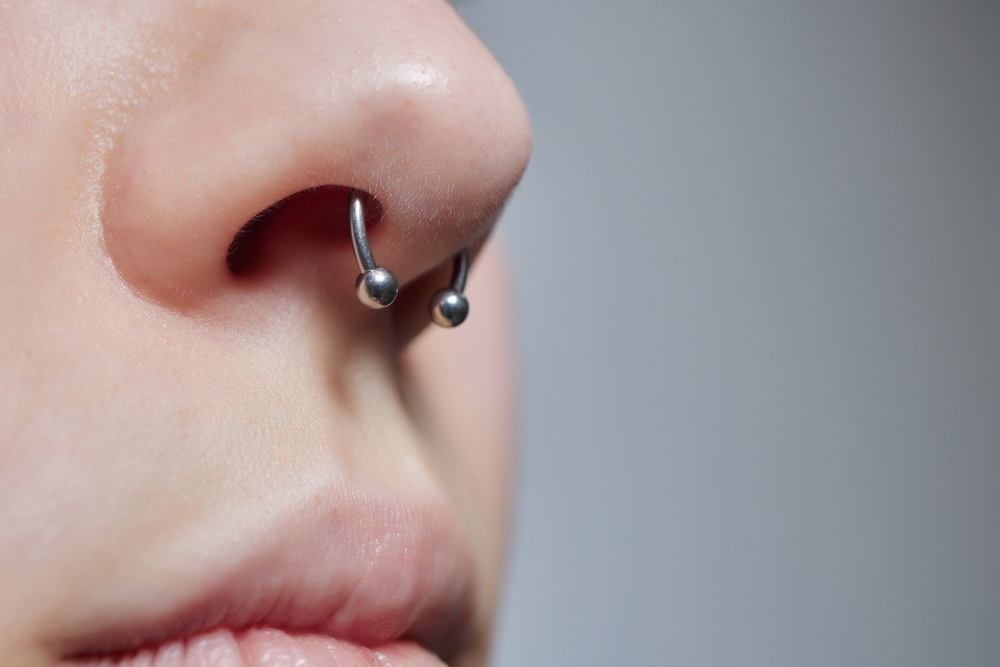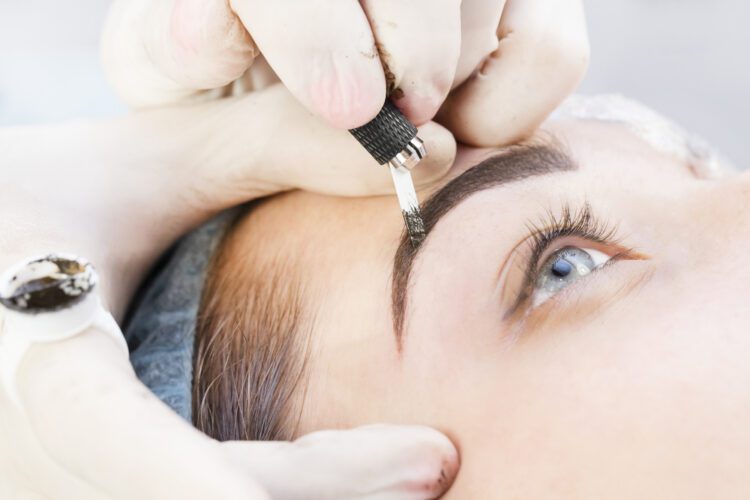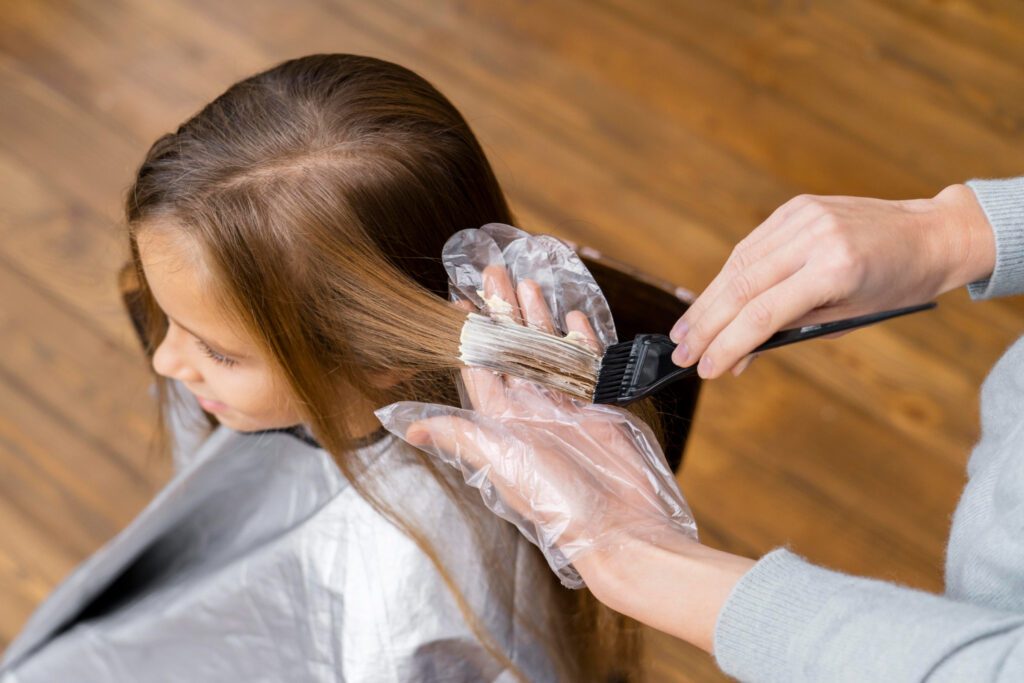Salt water pools have gained popularity for their perceived health benefits and lower chemical use compared to traditional chlorine pools. They use a salt chlorinator to produce chlorine from salt, providing a gentler swimming experience. However, many swimmers wonder if these pools might still pose risks to their hair.
How Salt Water Pools Work?
Salt water pools contain about 10% of the salt concentration found in seawater. They use a process called electrolysis to convert salt (sodium chloride) into chlorine, which helps sanitize the pool. This system provides a continuous, low level of chlorine, which can be less irritating to the skin and eyes than the chemicals used in traditional pools.
The Chemistry of Hair and Salt Water.
Human hair is primarily composed of a protein called keratin, which is held together by various bonds that provide strength and elasticity. When exposed to salt water, these bonds can be affected in several ways:
– Osmosis: Salt can draw moisture out of the hair, leading to dryness.
– Salt Crystals: As salt water evaporates, it leaves behind salt crystals that can cause physical abrasion to the hair cuticle.
– Altered pH Levels: Salt water can alter the pH of the hair, potentially leading to a rougher texture.
Expert Opinions on Salt Water Pool Hair Damage.
To provide deeper insights, we consulted with Dr. Emily Thompson, a dermatologist specializing in hair and scalp health, and Laura Collins, a professional hairstylist with over 20 years of experience.
Dr. Emily Thompson: “Salt water can indeed have a drying effect on hair, similar to how it affects the skin. The key issue is the loss of moisture, which can lead to brittleness and split ends if not managed properly.”
Laura Collins: “While salt water pools are generally less harsh than traditional chlorine pools, swimmers still need to take precautions. Using protective treatments and thoroughly rinsing the hair after swimming can mitigate a lot of potential damage.”
Personal Experiences.
Many regular swimmers share similar experiences regarding the impact of salt water on their hair. Jenna, a competitive swimmer, noted, “I switched to a salt water pool thinking it would be gentler on my hair. While it’s not as bad as chlorine, I still noticed my hair feeling drier after a few months.”
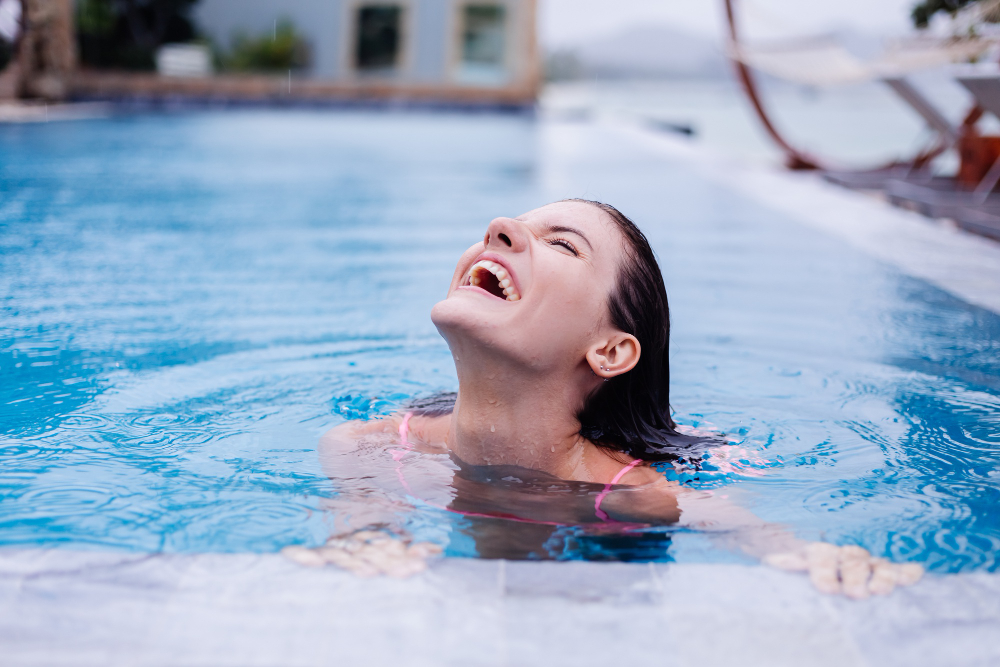
Preventative Measures to Protect Your Hair.
1 Pre-Swim Rinse: Wet your hair with fresh water before entering the pool. Hair absorbs less salt water when it is already wet.
2 Swim Cap: Wearing a swim cap can provide a physical barrier against salt water.
3 Conditioner Application: Apply a leave-in conditioner or hair oil before swimming to create a protective layer.
4 Post-Swim Rinse: Rinse your hair with fresh water immediately after swimming to remove salt residues.
5 Deep Conditioning: Use deep conditioning treatments regularly to restore moisture.
Scientific Evidence on Salt Water and Hair Health.
Studies on the effects of salt water on hair are relatively limited. However, existing research suggests that:
– Moisture Loss: Salt water can lead to significant moisture loss in hair, making it dry and prone to breakage.
– Mineral Buildup: Salt and other minerals can build up on the hair shaft, causing it to feel rough and look dull.
– pH Imbalance: Salt water can disrupt the natural pH balance of hair, leading to cuticle damage.
A study published in the “International Journal of Cosmetic Science” highlighted that the prolonged exposure to salt and sun could exacerbate these effects, particularly in hair that is already chemically treated or damaged.
Personal Interview: Real-Life Insights.
We had the opportunity to speak with Sarah Evans, a professional swimmer who has spent over a decade training in various types of pools.
Q: Sarah, how has your experience been with salt water pools compared to traditional chlorine pools?
Sarah: “I’ve found salt water pools to be much easier on my skin and eyes. However, my hair still gets quite dry. I always use a leave-in conditioner and make sure to rinse thoroughly after my sessions. I also use a hydrating mask once a week to keep my hair in good condition.”
Q: What advice would you give to fellow swimmers about hair care?
Sarah: “Prevention is key. Always wet your hair before entering the pool and apply some kind of protective product. A good swim cap can make a huge difference too. Post-swim care is just as important—don’t skip it!”
Frequently Asked Questions.
1 Is salt water better for your hair than chlorine?
Generally, salt water is less harsh than chlorine. However, it can still cause dryness and damage if hair is not properly protected and cared for.
2 How often should I wash my hair if I swim in a salt water pool regularly?
It’s advisable to rinse your hair with fresh water immediately after swimming and use a mild shampoo to wash your hair after every few swims. Avoid over-washing as it can strip natural oils.
3 Can salt water pools lighten hair color?
Salt water, combined with sun exposure, can lighten hair color over time, particularly for those with dyed or light-colored hair.
4 What are the best products to use for protecting hair from salt water?
Look for leave-in conditioners, hair oils, and products specifically designed for swimmers. Ingredients like argan oil, coconut oil, and silicone can provide a protective barrier.
5 Can salt water cause hair loss?
Salt water itself is unlikely to cause hair loss, but the associated dryness and brittleness can lead to breakage and split ends, giving the appearance of thinner hair.
Bottom Line.
Salt water pools offer a gentler alternative to traditional chlorine pools, but they are not completely free from causing hair damage. By understanding the potential effects and taking proactive steps to protect your hair, you can enjoy the benefits of salt water pools while minimizing the risks.















































 Workout
Workout

 Meditation
Meditation





